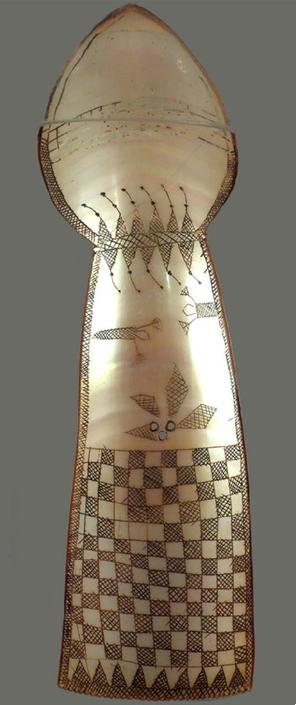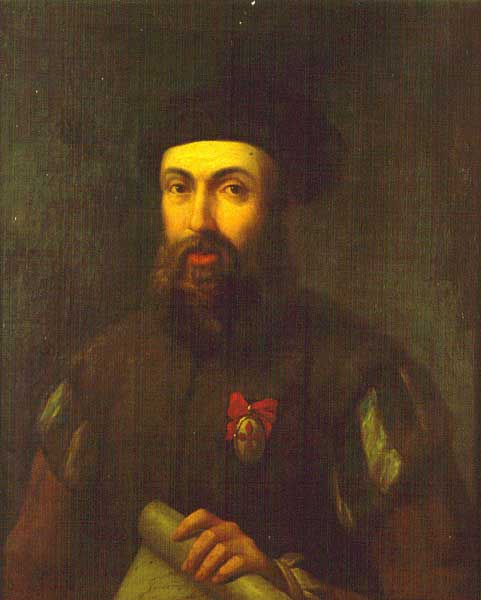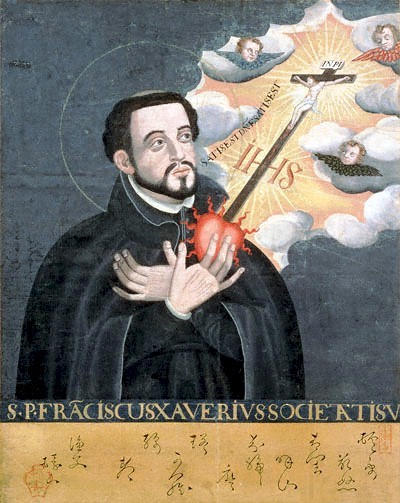- Add to Favorites
-
Your web browser does not support
Add to Favorites.
Please add the site using your bookmark menu.
The function is available only on Internet Explorer

11Story
| Sharing Cultural Memory |  |
|
|
The Iberians |
|
Apart from some relative inconsequential cultural influences, the most significant lasting effects of the Portuguese presence was the disruption and disorganisation of Asian trade, and in eastern Indonesia - including Maluku - the planting of Christianity. The Portuguese had conquered Malacca in the early sixteenth century and their lasting influence was most strongly felt in Maluku and other parts of eastern Indonesia. Following the Portuguese conquest of Malacca in August 1511, Afonso de Albuquerque learned the route to the Banda Islands and other "Spice Islands", and sent an exploratory expedition of three vessels under the command of Antonio de Abreu, Simao Afonso Bisigudo and Francisco Serrao. On the way to return, Francisco Serrao was shipwrecked at Hitu island (northern Ambon) in 1512. There he established ties with the local ruler who was impressed with his martial skills. The rulers of the competing island states of Ternate and Tidore also sought Portuguese assistance and the Portuguese were welcomed in the area as buyers of food and spices during a lull in the spice trade due to a temporary disruption to Javanese and Malay sailings to the area following the 1511 conflicts in Malacca. The Asian trade soon revived and the Portuguese were never able to dominate the trade. The Portuguese first landed in Ambon in 1513, but it became the new centre for Portuguese activities in Maluku following their expulsion from Ternate. European power in the region was weak and Ternate became an expanding, fiercely Islamic and anti-Portuguese state under the rule of Sultan Baab Ullah (r. 1570 - 1583) and his son Sultan Said. The Portuguese in Ambon, however, were regularly attacked from native Muslims on the island's northern coast, in particular Hitu, which had trading and religious links with major port cities on Java's north coast. Indeed, the Portuguese never managed to control the local trade in spices, and failed in attempts to establish their authority over the Banda Islands, the nearby centre of nutmeg production. |
 |
Allying himself with Ternate, Serrao constructed a fortress on the island and served as the head of a mercenary band of Portuguese warriors under the service of one of two feuding powerful sultans who controlled the spice trade. Such an outpost far from Europe generally only attracted the most desperate and avaricious, such that the feeble attempts at Christianisation, strained relations with Ternate's Muslim ruler. Serrao urged Ferdinand Magellan to join him in Maluku, and gave the explorer information about the Spice Islands. Both Serrao and Magellan, however, perished before they could meet one another. In 1535 King Tabariji was deposed and sent to Goa by the Portuguese. He converted to Christianity and changed his name to Dom Manuel. After being declared innocent of the charges against him he was sent back to reassume his throne, but he died en route in Malacca in 1545. He had, however, bequeathed the island of Ambon to his Portuguese godfather Jordao de Freitas. Following the murder of Sultan Hairun at the hands of the Portuguese, the Ternateans expelled the Portuguese in 1575 after a five-year siege. |
|||
| Ferdinand Magellan, Unknown, 1848, from the original of 1787, Museo naval de Madrid |
|
Spaniards took control of Ternate and Tidore. Missionary and Catholic Saint Francis Xavier worked in Maluku in 1546-1547 among the people's of Ambon, Ternate and Morotai (or Moro), and laid the foundations for a permanent mission there. Following his departure from Maluku, others carried on his work and by the 1560s there were 10,000 Catholics in the area, mostly on Ambon, and by the 1590s there were 50,000 to 60,000, although most of the region surrounding Ambon remained Muslim. Following Portuguese missionary work, there have been large Christian communities in eastern Indonesia through to contemporary times, which has contributed to a sense of shared interest with Europeans, particularly among the Ambonese. Other influences include a large number of Indonesian words derived from Portuguese which alongside Malay was the lingua franca up until the early nineteenth century. Contemporary Indonesian words such as pesta ('party'), sabun ('soap'), bendera ('flag'), meja ('table'), Minggu ('Sunday'), all derive from Portuguese. Many family names in Maluku are derived from Portuguese including De lima, Waas, da Costa, Dias, de Fretas, Gonsalves, Mendosa, Rodrigues, and da Silva. Also of part-Portuguese origin is the romantic keroncong ballads sung to a guitar |
 |
|
| Saint Francis of Xavier was one of the founding members of the Society of Jesus, also known as the Jesuits. |
| << PREVIOUS SECTION << |